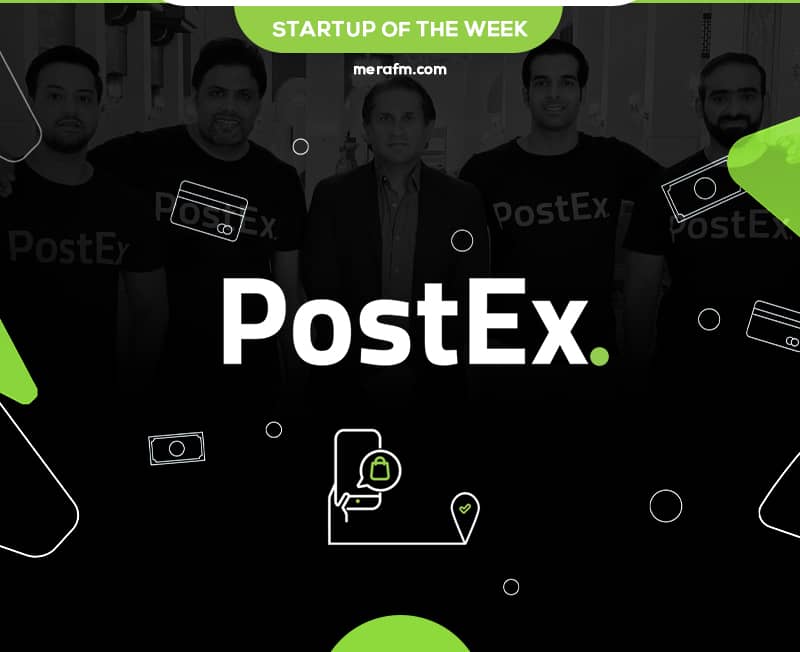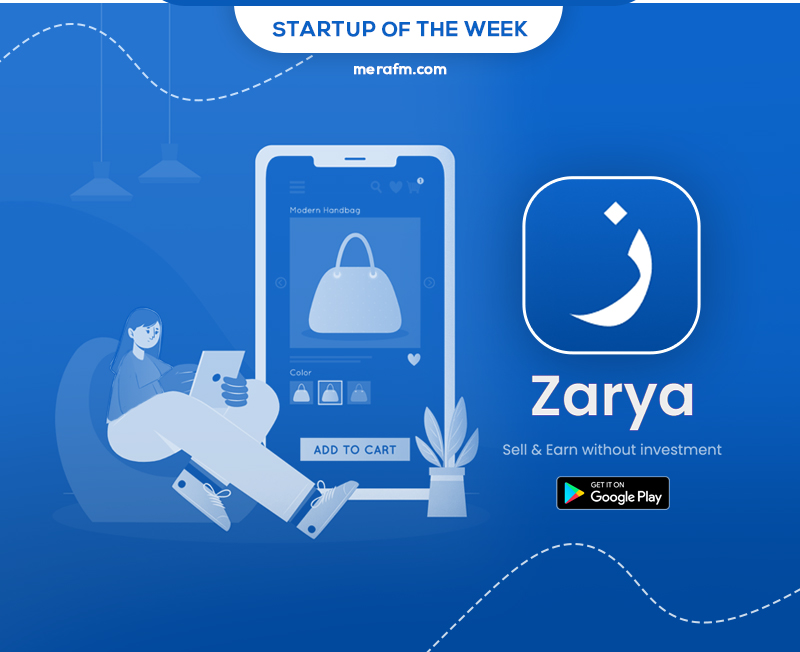
Gmail hits 10 billion installs on Android
Gmail hit a new milestone with 10 billion installs
Gmail for Android has now achieved 10 billion installs on the Google Play Store. This marks a new milestone for Google’s email service.
Currently, billions of people use Google’s email app for both business and personal email accounts. Owing to the fact that it comes pre-installed on practically all Android handsets.
After Google Play Services, YouTube, and Google Maps, the total number of Gmail app installations on Android has topped 10 billion, making it the fourth on Google Play Store to do so.
While Gmail comes preinstalled on many Android devices. It is only the most recent in a long line of Google apps to surpass the 10 billion download mark. Since its inception in 2004, Google’s email service has grown in popularity and recently incorporated a slew of new capabilities.
Also Read: YouTube and Google Search Engine Down Including Gmail and Drive
Gmail interface
While Gmail has been around for a long time and has over 10 billion users. That includes Google’s other email service, Inbox by Gmail, debuted in 2015 and was shut down just four years later. Many of Inbox’s innovations, such as the option to snooze emails, Smart Reply, nudges, and high-priority notifications, eventually made their way into the main Gmail interface.
What is new in Gmail features?
Gmail now has exciting features for the web and mobile apps that allow users to recall emails within different time frames, with options ranging from five to ten, twenty, or thirty seconds to cancel a sent email, as opposed to the previous standard five-second window to recall a message sent in error.
Gmail’s Google Chat has recently been enhanced to allow users to make one-on-one audio and video calls. While this development is primarily for Android and iOS users, these calls can only be made with particular individuals in the discussion list, with users being able to check missed calls and current call details from the discussion list on the Android and iOS platforms.
Have something to add to the story? Comment down below!

Tech Tuesday Start Up of the Week: Healthwire
Healthcare in Pakistan
Healthcare in Pakistan has been one of the country’s most serious problems for a long time, but it has significantly improved in recent years. Currently, health services are available to 92 percent of the rural population and 100 percent of the urban population. Despite efforts to improve healthcare quality, the majority of the population prefers to consult with private doctors and practitioners. Let us introduce Healthwire, a firm that wants to make this more fuelled with its efforts.
Healthwire
Healthwire is a health-tech business that operates one of Pakistan’s largest horizontally integrated healthcare service provider networks. Hamza Iqbal, a LUMS graduate, started the company with the goal of making great healthcare accessible and cheap to every Pakistani citizen. Healthwire has been dedicated to digitizing the operations of doctors, clinics, hospitals, labs, and pharmacies from its beginning, and today has the largest and most widely integrated platform of thousands of health care service providers in over 60 locations across Pakistan.

The shift of tech-based-hospital setup
In 2015, the startup began as a doctor booking tool, but its creator and CEO, Hamza Iqbal, rapidly discovered that hospitals and doctors in Pakistan were not ready to use it. He quickly shifted gears and began selling it as cloud-based hospital and practice management software.
Healthwire mobile application
Healthwire has launched a web and mobile application for patients to connect with healthcare service providers, extending its strong position in the healthcare ecosystem. Every single day, the site connects over 10,000 patients with doctors. The business plans to use the funds to accelerate its expansion and become Pakistan’s healthcare super app.
Additionally, the startup Healthwire says, “The platform is already connecting over 10,000 patients with doctors every single day. The startup intends to use the funding to further fuel its growth and become the healthcare super app of Pakistan.”
Healthwire raises $3.3M in series A funding
Healthwire, a health-tech firm has raised $3.3 million in Series-A funding. Moreover, in 2020, Healthwire raised $700,000 in pre-series A from Pakistan-focused VC 47 Ventures.
The Healthwire funding comes as Pakistan’s startup scene reaches new heights at the end of the year. Pakistan’s startups raised nearly $370 million in 2021 alone, which is more than the previous few years combined. Sehat Kahani started raising $1.5 million, Ailaaj $1.6 million, Marham $1 million, and Dawaai claimed to raise $8.5 million in the health-tech field in 2021.
Last but not the least, if you like this article, find out more startups in our segment Tech Tuesday. If you want your startup to get featured, contact us.

2021: cryptocurrency crime reach an all-time high in value
2021 cryptocurrency crimes
According to a Thursday’s New York blog by blockchain analysis firm Chainalysis, cryptocurrency-related crime hit a new high in terms of value last year. This also includes unlawful addresses receiving $14 billion in digital currencies, up 79 percent from $7.8 billion in 2020.
According to Chainalysis, illegitimate addresses possess approximately $10 billion in cryptocurrencies as of early 2022. The majority of this is held by wallets linked to cryptocurrency theft.
Ransomware, ponzi scheme and phishing scams
Illicit addresses are wallets linked to illicit activities including ransomware, Ponzi schemes, and phishing scams.
However, criminal activity accounted for only 0.15 percent of the total crypto transaction volume in 2021. Last year, total transaction volume increased by more than 550 percent from 2020 levels to $15.8 trillion.
The 0.15 percent percentage, according to Chainalysis, might possibly climb when the company discovers more addresses linked to unlawful transactions. And combines them into the total volume.
They also reported that its most recent crypto crime report that 0.34 percent of 2020’s crypto transactions were involved with unlawful behavior. The percentage has now risen to 0.62 percent.
“Criminal abuse of cryptocurrency creates huge impediments for continued adoption. This heightens the likelihood of restrictions being imposed by governments. And worst of all victimizes innocent people around the world,” said Chainalysis.
Despite this, the underlying trend indicated that, with the exception of 2019, which was an exceptional outlier year for cryptocurrency crime due to the multibillion-dollar PlusToken Ponzi scam. Crime has become a minor element of the cryptocurrency ecosystem.
Also Read: TikTok tests vanishing video stories feature similar to Snapchat, Facebook and Instagram
The surge in decentralized finance, or DeFi, which allows crypto-denominated loans outside of traditional banking, has also been cited as a contributing factor to the spike in stolen funds and frauds, according to the paper.
Cryptocurrency crime from DeFi system 2021
In 2020, fewer than $162 million in cryptocurrencies were stolen from DeFi systems, accounting for 31% of the total amount stolen for the year. This was a 335 percent rise from the total amount of money stolen on DeFi platforms in 2019.
According to Chainalysis, that sum will have increased by 1,330 percent to $2.3 billion by 2021.
In 2021, the amount of DeFi transactions increased by 912 percent. According to Chainalysis, the outsized returns on decentralized tokens like Shiba Inu have driven investors to bet on DeFi tokens.
Kim Grauer stated in an email to Reuters at Chainalys said, “The increase in DeFi-related crime is an example of how criminals often exploit new technologies.”
Also Read: Top 10 Pakistani startups of 2021
Furthermore, he said, “When DeFi started to grow this year, we saw large increases in DeFi protocols being used to launder money. Moreover, DeFi protocols being the actual victims of crimes such as hacking.”
Have something to add to the story? Comment down below!

Tech Tuesday Start up of the Week: Rider
The world of E-commerce Logistics!
The key to success for any e-commerce startup business is well-coordinated logistics. There are the things you need to know about your online brand’s future especially related to logistics.
Team management
In e-commerce, logistics management is important – it’s the lifeblood of your business. It may be time to cooperate with third companies to store your products and fulfill your services, depending on where you are in the process.
Data planning
The majority of retailers’ inventory projections are based on past data. As a startup, you may not have that luxury. So, how do you figure out how much stock you’ll need? Until you have your own sales history, you can employ a few approaches.
Seasonal patterns for e-commerce logistics
To begin, keep an eye on site traffic and social sharing. If your social media efforts begin to bear fruit, demand may increase, and you’ll need to be prepared. Examine seasonal patterns, such as weather changes and holiday-related purchasing. Not just this, furthermore free shipping and last-mile delivery are some of the challenges.
Some difficulties
It gets more difficult to view the larger picture as your e-commerce logistics requirements rise. Rapidly growing companies may increase logistical capacity haphazardly, bolting on components to respond with a spike in orders or new items. Maybe you’ve started using multiple warehouses, drop shippers or other logistical strategies.
Pakistan proudly possesses one such startup “Rider” which is an ecommerce logistics business and gives a tech-driven solution to shippers.
Rider
Rider is a Pakistani e-commerce logistics company that provides online shippers with a tech-driven, customer-centric last-mile delivery solution that is rapid, dependable, and transparent. Their major goal is to revolutionize e-commerce logistics in Pakistan. At a time, one flawless delivery at a time.
Founded in 2019 by Salman Allana, the start-up provides internet retailers with last-mile delivery servicers via its technological platform. The firm employs over 500 drivers in its fleet, which covers more than 80 locations across Pakistan. Rider claims to have delivered 1.5 million ecommerce packages with a 93 percent success rate. Its clients include Khaadi and Daraz, two of the country’s top five internet shops.
Tech-driven solutions to consumers
Traditional logistics providers dominate the ecommerce logistics field in Pakistan, but Rider has made significant inroads into the market with services such as 24-hour cash repayment, 1-day lead time, cash now delivered later, and a high success rate. Its technology stack, which includes route optimization, live tracking, live scheduling, and highly automated warehousing, has also greatly aided the organization in developing efficient operations and establishing real-time interaction between shippers, delivery agents, and clients.
Rider raises $2.3 million seed funding
Rider, a Karachi-based ecommerce logistics business, announced today that it has raised $2.3 million in a seed round led by Global Founders Capital, Fatima Gobi Ventures, and Asian Development Bank. TPL E-Ventures and Transhold were also involved in the transaction.
Salman Allana, the CEO and founder of Rider believes that “Our vision is to be the number 1 logistics solutions provider for all of Pakistan’s e-commerce demand.”
Last but not the least, if you like this article, find out more startups in our segment Tech Tuesday. If you want your startup to get featured, contact us.

Top 10 Pakistani startups of 2021
Pakistan, acquiring the tech startup world!
Pakistan, the world’s last great unexplored market, is gripped by startup fever. The country’s burgeoning tech sector is attracting international investment. This year’s funding has surpassed the previous six combined. In the world’s fifth-largest country, the startup scene is exploding. Investors from the United States, Singapore, and the United Arab Emirates joined the rush into Pakistan’s embryonic technology sector in 2021, more than in the previous six years combined. About half of the fundraising agreements have involved a former Microsoft Corp. or LinkedIn Corp. employee. Several local entrepreneurs contacted me for help with funding and accelerating their businesses. And, thanks to their tenacity and good fortune, they were able to obtain what they required.
Top 10 Pakistani startups of 2021!
Below we list the top 10 Pakistani startups of 2021 who made a difference with their unique business model and a talented set of teams.
1- Airlift Technologies
Airlift began as a mass transit company in 2019 but had to cease operations in March owing to Covid-19. As a result, the company established a 30-minute grocery delivery service, which is now offered in eight Pakistani cities. Airlift now delivers fresh produce, OTC and prescription medicines, and sports products from its network of several fulfillment sites in every location it works in, in addition to groceries. The site, which was launched in 2020, has increased 30-50 percent month over month on average, according to the business. Fresh produce is also being distributed through the startup’s farmer-to-consumer distribution route. And it is considered to be one of the most successful and top Pakistani startups of 2021.
Airlift funding till now: $110M (Series A: $12M, Series B: $85M)
2- Bazaar Technologies
Bazaar is a mobile-based e-commerce marketplace created by Saad Jangda and Hamza Jawaid that allows people who own local grocery stores (Kiryana stores) to purchase merchandise from manufacturers, distributors, and suppliers.
When the two co-founders started creating Bazaar, they set a goal of serving 800 retailers in Karachi by the end of 2020, but by the end of the year, they had serviced over 10,000, exceeding their initial targets by over 10x in terms of people served and GMV. They also have an app that offers free next-day delivery on over 500 SKUs of branded and unbranded products. For retailers, Bazaar provides quick ordering and reliable, timely delivery at market competitive costs. Whereas it also has perks for suppliers, such as a direct path to market, cost-effective distribution, and relevant market analytics.
Bazaar funding till now: $37.8M (Pre Seed: $1.3M, Seed: $6.5M, Series A: $30M)
3- Retailo Technologies
Retailo is a Riyadh-based store where you order kiryana supplies online. It also connects manufacturers, distributors, and wholesalers. Its goal is to make retail supply networks more technologically advanced. Furthermore, to create a tech-enabled distribution marketplace that will address inefficiencies in the informal retail sector. Talha Ansari, Mohammad Nowkhaiz, and Wahaj Ahmed founded Retailo. They have expertise working for regional startups like Careem, Rocket Internet, Daraz, Foodpanda, and Shopistan. Retailo provides a plethora of possibilities for running a business through its b2b app. It offers market competitive prices that assist the store in maintaining a consistent and optimal inventory level.
Also Read: Tech Tuesday Startup of the Week: Retailo Technologies
Retailo funding till now: $9M (Pre Seed: $2.3M, Seed funding: $6.7M)
4- PostEx
PostEx is a hybrid receivables factoring solution and courier service founded in April 2020. The founders include Omer Khan, Saad Mahmood, Babar Razzaq, and Adil Naseem. The startup PostEx pays invoice values upfront to E-commerce enterprises offering Cash on Delivery is one of their ways of payment. It differs from many other participants in the industry. Furthermore, it does not require vendors to wait for payment for their cash-on-delivery orders. The firm is now on a mission to make delivery services seamless. In addition, by transforming traditional delivery into modernized delivery with immediate and upfront cash on orders. PostEx is seeking to address the difficulties of payment cycles and transactions with its finance and logistical platform. In addition to cash-on-delivery, PostEx offers a payment gateway that merchants may integrate on their website to accept credit cards, bank accounts, and mobile wallet payments online.
PostEx funding till now: $8.6M (Seed funding: $1.5M, Series A: $7.1M)
4- Dastgyr
Zohaib Ali and Muhammad Owais are the creators of Dastgyr. Dastgyr is a B2B E-commerce marketplace launched in May 2020 with a team that includes Muhammad Awais Chaudhary, Haseeb Siddiqui, Asad Qamar, and Maaz Tariq. It is a B2B E-commerce marketplace launched in May 2020 with a team that includes Muhammad Awais Chaudhary, Haseeb Siddiqui, Asad Qamar, and Maa Dastgyr is a platform that allows shops and enterprises to buy goods from manufacturers, brands, and wholesalers all in one place. This startup gives its buyers and sellers access to extra channels that will help them increase their revenue with super-fast, low-cost, low-waste delivery systems across Lahore and Karachi.
Dastgyr funding received till now: $4M (Seed $3.5M)
6- Trukkr
Sheryar Bawany, Waqas Khatri, Ali Haji, Mishal Adamjee, and Kasra Zunnaiyer founded the company in 2020. Trucker is a Karachi-based start-up that assists businesses in transporting their goods across Pakistan via its network of carriers, allowing people to access logistics across the country. Both shippers and carriers benefit from Pakistan’s cutting-edge technology, complete openness, country-wide accessibility, and expanded options.
By connecting a shipper directly with a driver over a safe, intuitive, and powerful platform, this start-up speeds up the process of scheduling commercial cargo. They also ensure that shippers have complete transparency in pricing discovery, as well as visibility, flexibility, and choice while providing drivers with easy access to more jobs whenever they want them. Trukkr provides a digital answer to your water-related issues. Trukkr delivers quality water tanker service in addition to moving your items. Choose from a variety of quantity options. Allow Trukkr to handle your water issues by tapping. Customers of Trukkr can use the platform at no cost.
Trukkr funding till now: $600,000 (Seed Round)
7- DigiKhata
DigiKhata, founded by Adnan Aslam in 2020, allows micro and small enterprises to handle their bookkeeping through a web and mobile app. The program helps merchants digitize their bookkeeping by documenting financial transactions digitally, replacing offline registers and diaries. It also sends automated payment reminders to its clients, assisting businesses in recovering arrears. Adnan Aslam supervised financial and bookkeeping capacities at different firms in Pakistan, the United Arab Emirates, and Africa before founding DigiKhata. He’s a certified accountant who bootstrapped the business with his own money prior to raising this round. Kiryana stores, tea shops, grocery stores, bakeries, fruits and vegetable shops, jewelers, pharmacies, clothing shops, and tailors, among other things, are managed by DigiKhata. The first Pakistani app with adequate capabilities for managing your personal or numerous business accounts. It handles debit and credit transactions, as well as installment payments.
DigiKhata funding till now: $2M (Seed Round)
8- Maqsad
Maqsad was founded by Taha Ahmed and Rooshan Aziz, who previously worked in strategy consulting and investment banking in London. “Making education more accessible to 100 million Pakistani students” is the goal of this mobile-only education platform. Friends from my childhood who grew up in Karachi are well aware of the challenges that Pakistan’s education system faces, which is particularly challenging for those who do not live in large cities. The Maqsad platform promises to provide a one-stop-shop for after-school academic content in English and Urdu. Quizzes and other gamified components round out the experience. All of these things will come together to provide individuals with a customized education. One of the platform’s features is adaptive testing, which alters the complexity of a question based on user responses.
Also Read: Tech Tuesday Start Up of the Week: Maqsad
Maqsad funding till now: $2.1M (Pre Seed)
9- Tazah
While serving in top roles at Uber subsidiary Careem, the founders of Tazah Technologies, a B2B agriculture marketplace in Pakistan, met. During lengthy working hours, Abrar Bajwa and Mohsin Zaka bonded as the platform faced with the consequences of COVID-19. Eventually, the two began discussing the possibility of starting their own business. Furthermore, both of the founders came from agrarian families. “We’re from central Punjab, where every family is involved in agriculture,” he explained. “We’d witnessed directly how farmers, or those who work in small-scale farming, don’t have access to social mobility since the odds are stacked against them.”
This Pakistani startup intends to eliminate inefficiencies in the local agriculture sector and transform it. Tazah intends to expand its marketplace to include financial services for farmers and other industry partners. In addition to helping farmers enhance their social status, its platform will assist reduce food prices and waste, as well as improve everyone’s access to fresh produce.
Tazah funding received till now: $6.5M (Pre Seed: $2M, Pre Seed extension: $4.5M)
10- Zarya
The B2B startup Zarya was formed by two brothers named Faisal and Saad Zahid, with the goal of enabling small sellers (mainly women) to source various products and sell them through their network. Zarya is in charge of the entire process, from goods sourcing to delivery and payment, as well as the overall profit transfer once a sale is done. Furthermore, the startup’s platform now contains over 3,000 products, with plans to add more in a variety of categories including home textiles, beauty, shoes, and more. Zarya now has over 3,000 products on its website, with intentions to expand into other categories such as abayas, shoes, home textiles, and beauty in the near future.
Zarya funding received till now: $1.7M (Pre Seed)
Also Read: Tech Tuesday Start up of the week: Zarya
So, what is one of the top 10 Pakistani startups of 2021 that inspired you? If you have anything to add to the story, comment down below! Last but not the least, if you like this article, find out more startups in our segment Tech Tuesday. If you want your startup to get featured, contact us.

The Log4j security bug risk the entire internet here’s what you should know
The Log4j security bug poses risk!
The flaw, which was discovered late last week, is in Java-based software known as “Log4j.” This software is used by huge companies to configure their apps, and it poses a risk to much of the internet.
According to security analysts, Log4j is used by Apple’s cloud computing service, security firm Cloudflare. Moreover, one of the world’s most popular video games, Minecraft.
Jen Easterly, the director of the Cybersecurity and Infrastructure Security Agency of DHS called it “one of the most significant issues”. Easterly said in a statement on Saturday that “a growing set” of hackers are actively seeking to exploit the flaw.
David Kennedy, CEO of cybersecurity firm TrustedSec said, “It will take years to address this while attackers will be looking… on a daily basis[to exploit it].” Furthermore, he said, “This is a ticking time bomb for companies.”

What exactly is Log4j, and why is it crucial?
According to cybersecurity experts, Log4j is one of the most widely used logging libraries online. Log4j allows programmers to create a log of activities that may be used for a variety of applications. That includes debugging, auditing, and data tracking. The library practically touches every portion of the internet because it is both open-source and free.
Apple, IBM, Oracle, Cisco, Google, and Amazon are among the companies that use the software. It could be present in popular apps and websites. This exposes hundreds of millions of devices around the world that use these services to the risk.
Also Read: Delete these Joker Malware infected Android apps or lose your data
Chris Eng, chief research officer at cybersecurity firm Veracode told CNN Business, “It’s ubiquitous. Even if you’re a developer who doesn’t use Log4j directly, you might still be running the vulnerable code. Because one of the open-source libraries you use depends on “Log4j.”
He also said, “This is the nature of software: It turtles all the way down.”
Are hackers exploiting Log4j?
According to cybersecurity firm Cloudflare, attackers appear to have had more than a week’s head start on exploiting the software issue before it was officially publicized. With such a large number of hacking attempts per day, some are concerned that the worst is yet to come.
Mark Ostrowski, Check Point’s head of engineering said, “Sophisticated, more senior threat actors will figure out a way to really weaponize the vulnerability to get the biggest gain.”
Microsoft stated in a blog post late Tuesday that state-sponsored hackers from China, Iran, North Korea, and Turkey had attempted to exploit the Log4j issue.
Why is this security flaw exploitative?
While it’s necessary to be aware of the vulnerability’s long-term consequences, security experts point out that it’s also important to be aware of the vulnerability’s short-term consequences. Hackers can easily obtain access to a company’s computer system, therefore experts are particularly concerned about the vulnerability. As the exploitation frenzy continues, the primary objective is to take as much action as possible immediately to reduce that tail.
Late Tuesday, the second vulnerability in Log4j’s system was discovered. The Apache Software Foundation, a non-profit that created Log4j and other open-source software, has released a security patch that businesses can use.
How are companies reacting to the Log4j flaw?
Minecraft published a blog post last week disclosing the discovery of a vulnerability in a version of the game, and swiftly offered a fix. Similar procedures have been adopted by other businesses. Customers have received advisories from IBM, Oracle, AWS, and Cloudflare, with some recommending security updates and others explaining their plans for potential remedies.
Also Read: Global websites down including Cloudflare and Pinterest after an outage at Cloud company ‘Fastly’
This is such a serious flaw. It isn’t like a standard big vulnerability that can be patched by pressing a button. It will take a significant amount of time and work.
CISA said it will set up a public website with updates on what software items were affected by the vulnerability. Moreover, how hackers exploited it for transparency and to help cut down on disinformation.
How to protect yourself from the Log4j security flaw?
Additionally, companies are under a lot of pressure to act promptly. For the time being, individuals should ensure that they update their devices. Furthermore, the software, and apps when prompted by firms in the coming days and weeks.
Have something to add to the story? Comment down below!
Tech Tuesday Start Up of the Week: Colabs
A freelancer’s co-working space
As a freelancer, you may be able to work from home, eliminating the need for commuting and providing a stress-free atmosphere. However, most freelancers find it difficult to work from home since they are lonely, isolated, and distracted. All of these issues may have an impact on the efficiency of your work. Many freelancers have found success working from home for a variety of reasons, including the lack of rent, the absence of a stressful commute, and so on. These advantages, however, are not available to every freelancer. They require a combination of relaxed working conditions and the atmosphere of a corporate office.
A perfect compromise?
Coworking spaces are the perfect compromise between the quiet privacy of home and the frantic pace of a crowded office. They provide a space for the lonely freelancer to feel like they’re part of a tribe while still giving complete flexibility in terms of attendance and engagement.
The advantages of co-working space for freelancers include
- Cost-effectiveness
- Networking
- Balanced home and work life
- Routine management
- Increased productivity
Coworking spaces are nearly non-existent in Pakistan. And, even if they are, they do not satisfy the urge for creativity. A Lahore-based startup, Colabs, has taken a unique approach to this challenge.
Colabs
Without a doubt, Colabs is transforming the future of employment in Pakistan. Colabs is Pakistan’s fastest-growing flexible workspace, with thoughtfully designed spaces to help people and organizations succeed.

It began as a coworking space in 2019 by twin brothers Omar and Ali Shah, and now has two locations in Lahore, with a third on the way. On the surface, it appears to be another coworking space, but what sets it distinct is its goal of building the world’s largest community of entrepreneurs and freelancers in the world’s fifth-largest country.
Through its community and network, Colabs hopes to foster cooperation, productivity, and invention. Their goal is to change the way Pakistanis work in the future.
Colabs – a hub for young entrepreneur
The Colabs community has 1000 seats and over 100 companies across multiple facilities in Pakistan. Their community is a mix of freelancers, startups, SMEs, and MNCs (Including Rocket Internet, Patari, SadaPay, 10pearls, USAID, OMD, and Coca-Cola).
Moreover, Colabs is a hub for young and aspiring entrepreneurs and houses a 1:2 gender ratio within its spaces and a 1:1 ratio with the Colabs team itself. The average age of the in-house member is 27 years.
A vision to grow stronger!
Colabs now has over 100 ecosystem partners, including universities, venture capital firms, corporations, government agencies, and industry leaders (i.e. Lums, PITB, Startup grind, NICs, Uber, Microsoft for Startups, and AWS). Colabs helps local and foreign enterprises to access, establish, and grow in the Pakistani market through this diversified and linked ecosystem, as well as our entrepreneurship initiative (CoGrow).
Colabs is always innovating, reimagining the future of work in Pakistan, and developing new work experiences. In addition to that, they are working tirelessly to bring together a community of 100,000 entrepreneurs in Pakistan, beginning with 5000 seats in the next 24 months.
Last but not the least, if you like this article, find out more startups in our segment Tech Tuesday. If you want your startup to get featured, contact us.

Tech Tuesday Start up of the Week: PostEx
PostEx
PostEx is a hybrid receivables factoring solution and courier service founded in April 2020. The founders include Omer Khan, Saad Mahmood, Babar Razzaq, and Adil Naseem. The startup PostEx pays invoice values upfront to E-commerce enterprises offering Cash on Delivery is one of their ways of payment. It differs from many other participants in the industry. Furthermore, it does not require vendors to wait for payment for their cash-on-delivery orders.
The firm is now on a mission to make delivery services seamless. In addition, by transforming traditional delivery into modernized delivery with immediate and upfront cash on orders.

Omer Khan returned to Pakistan from Dubai to launch the firm after realizing that more than 90% of Pakistan’s internet buying was done using cash payments after delivery rather than electronic transactions, causing businesses’ finances to be held up for weeks.
What PostEx offers?
The majority of online shoppers in Pakistan use the cash-on-delivery payment option, and payment cycles for such transactions span from a week to a month, causing cash flow problems for online retailers. With its financial and logistics platform, PostEx is attempting to address these issues. In addition to cash-on-delivery, PostEx provides a payment gateway that vendors may embed on their website to take online payments via credit cards, bank accounts, and mobile wallets.
Features of PostEx
Secure payments
PostEx authentication, both non-3D, and 3DS, is intended to assist the user in capturing more money.
Lowest Price
With PostEx, users can start accepting online payments for as little as 3%.
Go Global
Customers from all around the world can use any major debit or credit card at PostEx.
No transaction fee
You will not be charged a fee for any transaction, allowing you to expand your business with Paid.
One-click integrations
PostEx provides one-click prebuilt plugin interfaces for systems like Shopify, wooCommerce, Magento, and others that can be up and running in as little as 10 minutes.
Zero integration fee/annual fees
You can make your transaction to accept digital payments seamless at zero charges with PostEx.
PostEx raises a collective of $8.6m in seed funding
According to its founder Muhammad Omer Khan, the Lahore-based business raised $8.6 million in numerous early fundraising tranches. Global Founders Capital led the current round, which featured first-time investments in Pakistan from FJ Labs and RTP Global.
In the world’s fifth-largest country, the startup sector is expanding. In 2021, more than $300 million was invested in Pakistan’s fledgling technology sector, more than in the preceding six years combined.
On this occasion, the founder says, “The space has been underserved by traditional financial providers. Banks would not loan to e-commerce platforms because they don’t have anything to put as collateral,” Khan said in an interview. Moreover, he says, “We know their business. We understand that they’re growing very fast. So why not just use that as collateral?”
Furthermore, in the current capital boom, Pakistan’s e-commerce business has attracted the greatest investment. Khan predicts that the bulk of the population has yet to adopt online shopping, leaving the potential for the industry to expand and transactions to reach $10 billion by 2025, up from roughly $6 billion presently.
Despite the fact that the e-commerce industry in Pakistan is rapidly expanding, the bulk of the country’s population has yet to fully embrace online purchasing, which poses a hurdle for Pakistani companies.
Last but not the least, if you like this article, find out more startups in our segment Tech Tuesday. If you want your startup to get featured, contact us.

TikTok launches new transparency center to share insights into content removal
TikTok launches new transparency centre
TikTok has now issued its most recent Content Removal Requests Report. This lists all of the uploads that were removed in the first half of the year due to violations of its community guidelines or other official and/or legal requests.
Furthermore, TikTok has developed a new Transparency Center, which will house all of the company’s transparency data in the future. This will make it easier to track historical patterns in one spot.
The advantage of having all of this information in one place is that you can simply compare them to earlier data to detect patterns and changes in TikTok’s enforcement efforts.
Also Read: Instagram Now Lets You Recover Deleted Posts
For example, in the second quarter of this year, TikTok eliminated more content in the United States. That corresponds to previous reports’ historical trends.

As you can see, the United States led the way in Q2 2021, with 11.4 million videos banned owing to various infractions, followed by Pakistan (9.9 million) and Brazil (7.5m).
In TikTok’s prior three reports, the same three countries topped the list, with fewer infractions discovered overall in Q1 this year.
Also Read: TikTok tests vanishing video stories feature similar to Snapchat, Facebook and Instagram
How does TikTok transparency work?
The new Transparency Center makes it easy to evaluate the platform’s enforcement activities over time and see historical shifts.
In terms of the reasons for removals, the top issue in Q2 was ‘Minor Safety. It accounted for 41.3 percent of all removals. It followed by ‘Illegal activities and regulated goods,’ (20.9 percent), ‘Adult nudity and sexual activities,’ (14%), and ‘Violent and Graphic Content,’ which accounted for 14%. (7.7 percent ).
Improving the enforcement of fake profiles
TikTok has been working to improve its enforcement of fake profiles. A growing problem as it becomes a bigger consideration for influence activity. As always, proactive detection measures enable TikTok to ensure that the majority of violative content is removed before any users see it.
According to TikTok, “We continue to evolve and adapt our safeguards by investing in automated defenses. This includes detecting, blocking, and removing inauthentic accounts and engagement. Moreover, by improving our speed and response to evolving threats. From April-June, we stopped 148,759,987 fake accounts from being created. We also removed 8,542,037 videos posted by spam accounts.”
Fake and inauthentic profiles become a bigger problem. The bigger your platform gets, and it’ll be interesting to follow. TikTok’s enforcement efforts on this front to get a sense of how many fakes are trying to infiltrate its network.
Also Read: WhatsApp now allows chat history transfer from iOS to Android, but there’s a catch
Is it a positive update from TikTok?
It’s a positive update for TikTok’s transparency reports. Furthemore to give insight into various facets of the company’s enforcement operations where it’s seeing more activity. Of course, these are merely documented infractions, and some issues may still slip through the cracks, but they do provide some more insight into how TikTok is addressing certain threats and difficulties.
Have something to add to the story? Comment down below!

Tech Tuesday Start up of the week: Zarya
What is a Reseller?
A business that buys services or things to resell rather than consume. This is frequently applied to an affiliate marketer in e-commerce. Because the resale goods to end users, retailers are considered resellers. Because they resell the things they buy to retailers, wholesalers are also known as resellers.
A reseller will purchase things for resale and profit, whereas a retailer will purchase goods from a producer and then resell them to his consumer at a higher price.
The reselling chain will see a price increase from the manufacturer to the merchant and finally to the customer. With each link in the chain profiting from the resale of the items. Resellers may simply increase the price of the things they resale. Or they may add value by merging related items or repackaging.
Also Read: Tech Tuesday Start Up of the Week: Maqsad
Are resellers registered?
A reseller is typically a registered business entity or an individual who buys and sells goods and services for the purpose of generating revenue per sale transaction.
This is more like a distribution procedure in the retail chain, where merchants step in to sell items directly to consumers from wholesalers. Resellers must alter commodity prices in order to create huge profit margins on each product sold.
Out of the reseller market, Zarya is one of the startups that is helping many home-based resellers, but how? Let’s find out!
Zarya
Founded by the sibling duo Faisal and Saad Zahid Zarya is a platform for resellers. Zarya provides a list of things for sale mainly to the home-based sellers (housewives). This platform allows the partners to concentrate on selling while Zarya handles everything from product sourcing through fulfillment. And when a sale is completed, each seller’s profit is transferred. Additionally, resellers don’t have to worry about dead stock or setting aside working capital for their business. They simply sell and leave the rest to Zarya.

Furthermore, Zarya is using Pakistan’s growing social media usage, which includes 100 million YouTube viewers and 45 million Facebook users, to launch a social eCommerce platform.
Despite the COVID-19 dilemma, the worldwide market for social commerce is forecast to be worth $89 billion in 2020. Moreover, it is expected to rise at a compounded annual growth rate of 31.4 percent to reach US$604.5 billion by 2027.
Also Read: Tech Tuesday Start up of the Week: Walee
Meesho the social selling platform of India
Moreover, Meesho in India pioneered the notion of social selling, which has now been adopted by a number of businesses in emerging markets. This includes Brimore and Taager in Egypt. Meesho was founded in 2015 and has raised over $1 billion in total funding to date. With its most recent funding round valuing the company at close to $5 billion.
Zarya announces raising $1.7mn in pre-seed funding
The Lahore-based B2B e-commerce platform has secured $1.7 million in a pre-seed round led by Raed Ventures, one of MENA’s leading VCs, with participation from Fatima Gobi Ventures, Class 5 Global, and Global Founders Capital. Taager, an Egyptian social commerce firm, joined the round after raising $6.4 million in a preliminary round earlier this year. The funding will be used to expand the startup’s seller supply.
Zarya currently has over 3,000 products on its website, with intentions to expand into other categories such as abayas, shoes, home textiles, and beauty in the near future.
Last but not the least, if you like this article, find out more startups in our segment Tech Tuesday. If you want your startup to get featured, contact us.




